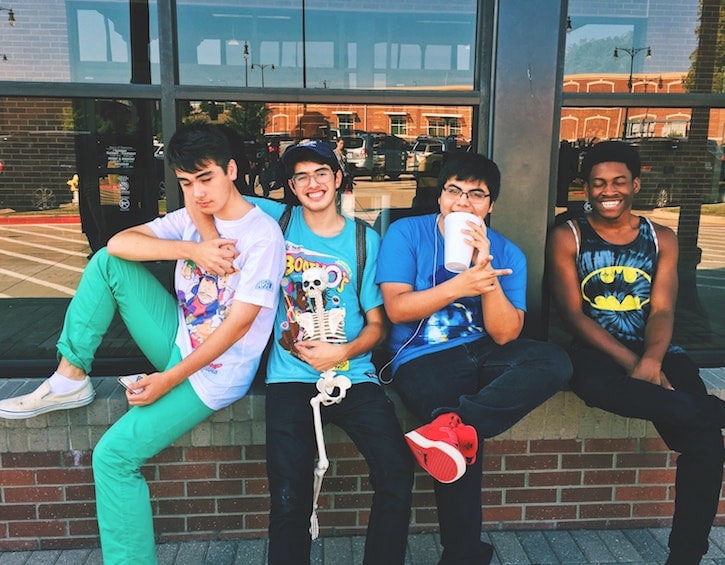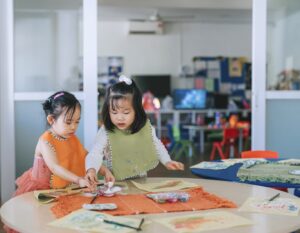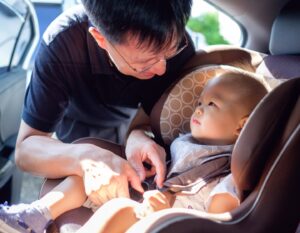
 Post Category - ParentingParenting - Post Category - Tweens & TeensTweens & Teens
Post Category - ParentingParenting - Post Category - Tweens & TeensTweens & TeensThey get by with a little help from their parents!
As a trained psychologist and practising counsellor, I often get parents coming to me seeking help to correct their teen’s “problem behaviour”. The general expectation is similar to that from a doctor – identify the symptoms and treat the child. Unfortunately, there is no easy or permanent fix when it comes to behaviour; these issues require a more holistic approach. The approach I suggest involves the parents themselves and is based on three simple rules:
- Parents as role models
- Communication
- Acceptance
Read more: Transitioning From Tweens To Teens And How You Can Help
Parents as role models
Parenting is a job that allows for only a small margin of error. So even before we set about the task of steering our children through the tough times in their lives, we need to do some introspecting ourselves. Responsible parents are also more conscious individuals, willing to change themselves if required, so as to be able to help their children do the same! We need to understand if we “are” what we are expecting or demanding of our children. The kind of adults that children grow into depends on their childhood – they could be similar to much-loved and respected parents or become just the opposite of them if they don’t like what they see!
Read more: Does Your Childhood Affect How You Parent?
Communication
Most parents believe that communication channels are open in their homes, but unfortunately, it’s only one way. By this, I don’t mean from parent to child. I mean that parents encourage their children to talk about what they are experiencing in school, including their dreams and fears, but, very often they are not open about themselves. The framework of our children’s personality is constructed by us – our life, our ideas and opinions, our problems and the solutions and strategies we seek and employ, our deductions and resolutions. Without learning about these, how will our children learn that it is okay to acknowledge a problem, articulate it and actively seek solutions? While we must always fuel their imagination and encourage idealism, it is also necessary to ground it with realism. By the time they are teenagers, children must be aware of the real world and what it takes to be a part of society.
Social networks don’t often present the real picture. Similarly, it’s the general tendency of parents to discuss issues behind closed doors and present a rosy picture of jobs, finances and even marriage to their kids. The reasons are noble – we don’t want to colour their opinions or make them cynical before their time. One solution would be to present situations and problems as they are, without any biases or opinion. After this, actively seek your teenager’s views and express your own. There are plenty of opportunities to exercise this within the family, especially when it comes to differences of opinion between couples. One school of thought is to keep children out of it (which I agree is necessary if the couple is handling it inappropriately). But if we can have and encourage healthy debates, children can be allowed into the dialogue after a certain age. The more we engage in conversation, discussing life issues and people around us, trying to analyse situations from various angles, helping children to consciously look for the grey areas, the more likely we are to nurture accepting and open-minded young adults.
Read more: How To Talk About World Events And Raise Informed Children
Acceptance
As I mentioned earlier, we need to find a holistic solution to problem behaviour, and so the third point is closely entwined with the first two. Acceptance requires us to genuinely understand and accommodate ourselves (with all our faults and follies), our children and others. We cannot be perfect at all times or expect it of others. If we accept this, discuss our own shortcomings openly with our children, stay open to constructive criticism, we will set ourselves up as accepting and communicating parents – the type of individuals that our teens will aspire to be. If we are always fiercely opinionated and judgmental, then at some core level, kids expect that they too will be judged by us. Start by observing how much we get swayed and affected by social norms and labels and keeping up with the Joneses (or Chans, Shahs and Smiths, as the case may be!). Are we expecting our children to be toppers with well-rounded versatile capabilities? Do we get disappointed when they aren’t achievers or don’t even have the enthusiasm to try? Can we accept that despite being raised by high-powered finance executives our teens may be laidback with fewer needs and simpler goals?

What parents consider to be problem behaviour now starts earlier than before – only its nature varies. The issues that older teens struggle with are different to those faced by 13 to 15 year olds and tweens. While the older ones may grapple with lack of confidence or motivation, the younger ones may be inappropriate in their language or dressing, in an effort to express their individuality. No matter how the problems manifest themselves, the solution is often the same. Use the three-pronged approach of role modelling, communication and acceptance to coach your teenager through this difficult phase of life.
Read more: Parenting Tips: How To Identify Your Child’s Talent And Hone It
 View All
View All











 View All
View All





 View All
View All


 View All
View All
















